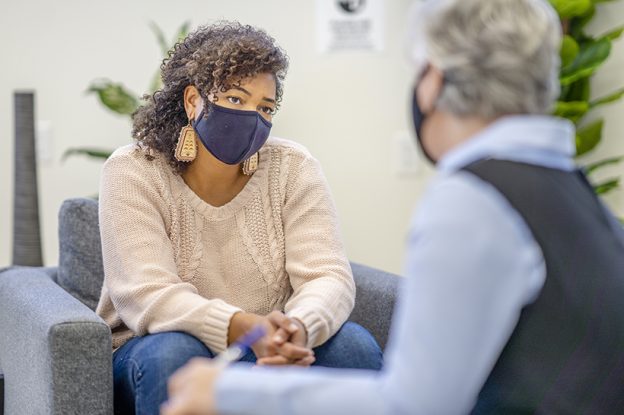
COVID-19 vaccine protection against hospitalization wanes for the most vulnerable
Research released in The Lancet Respiratory Medicine shows that a booster dose of the Pfizer COVID-19 vaccine provides strong protection, roughly 80% in the first few months against hospital admissions and emergency department visits caused by the delta and omicron variants. However, against omicron, this protection wanes over time for immunocompromised individuals — even after a third dose.
“Pfizer BioNTech COVID-19 booster doses significantly improve protection against omicron, although while that protection stays high for immunocompetent patients, it seems to wane for immunocompromised patients after 3 months against emergency room visits, and even for hospitalization,” said the study’s lead author, Sara Y. Tartof, PhD, an epidemiologist with the Kaiser Permanente Southern California Department of Research & Evaluation and a faculty member of the Kaiser Permanente Bernard J. Tyson School of Medicine, both in Pasadena.
For this study, the researchers analyzed 11,123 hospital admissions and emergency department visits that did not result in hospital admission for acute respiratory infection. The study focused on Kaiser Permanente patient records in Southern California from December 1, 2021, through March 18, 2022, when both the delta and omicron variants were circulating.
- After 2 doses of the Pfizer COVID-19 vaccine, effectiveness against omicron was 41% against hospital admission and 31% against emergency department visits at 9 months.
- After 3 doses in immunocompetent individuals, effectiveness against omicron-related hospitalization was 83% at less than 3 months and stayed high at 79% at 3 months or longer.
- After 3 doses in immunocompromised individuals, effectiveness against omicron-related hospitalization was 55% at less than 3 months and waned to 25% at 3 months or longer, although the sample size was small
- Against emergency department visits that did not result in hospitalization, protection was high and stayed high for immunocompetent individuals (approximately 78%), but remained at suboptimal levels in immunocompromised individuals (approximately 50%).
“Although the Pfizer COVID-19 protection levels against omicron after 3 doses are substantially higher than those seen after 2 doses, they are less than those observed for delta or other COVID-19 strains,” Tartof said. Further, immunocompromised persons appear at greatest risk of waning immunity, for whom “additional doses of current, adapted, or novel COVID-19 vaccines are needed to maintain high levels of protection against subsequent waves of COVID-19 caused by omicron or future variants with similar potential to escape protection.”
The first study was released April 22, 2022, and followed up in the same journal with supplemental research on May 6, 2022.





